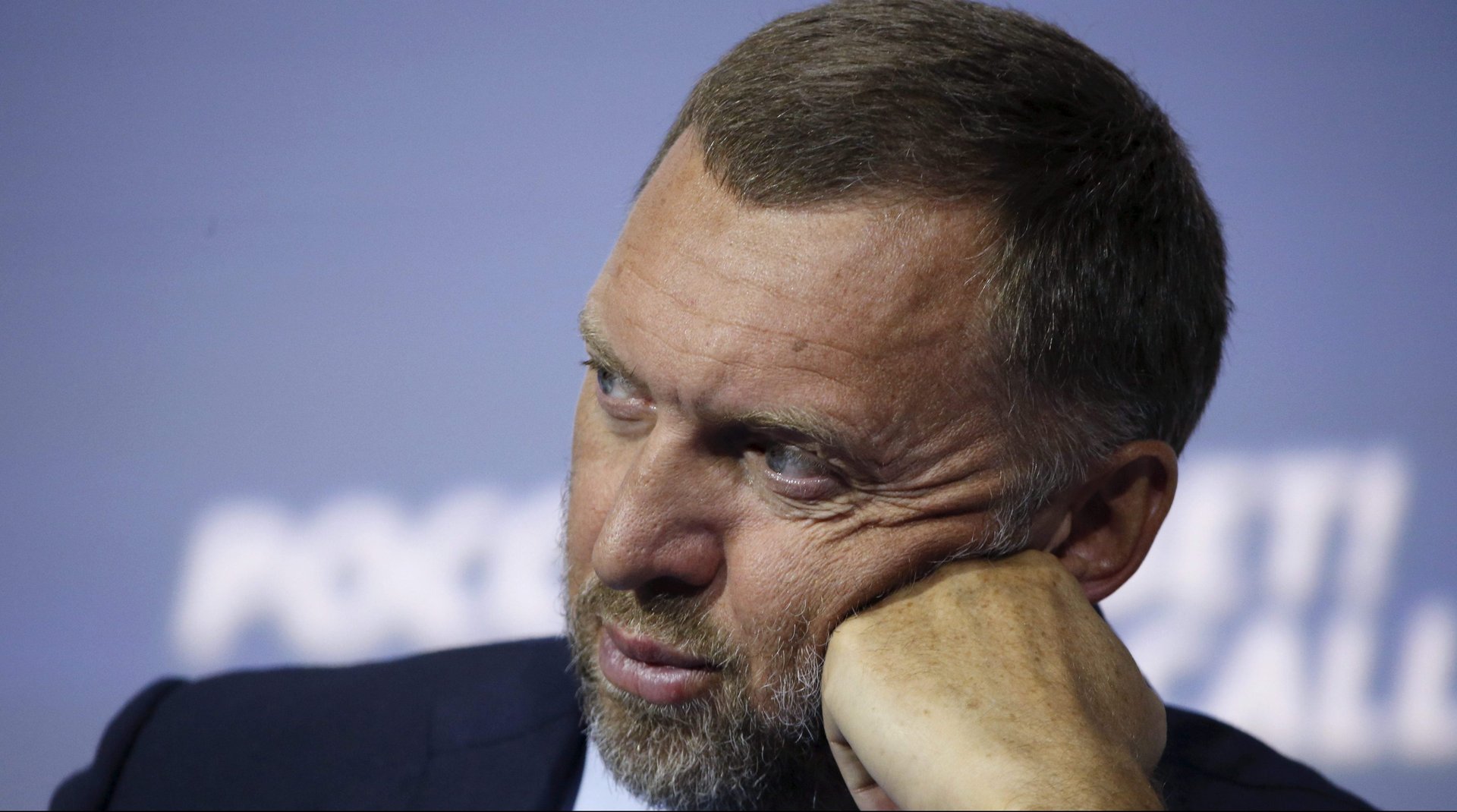Meet the Russian oligarch who paid Trump’s former campaign manager to help Putin
Oleg Deripaska, the Russian aluminum titan at the center of a new controversy surrounding US president Donald Trump, rose up in the blood-and-guts, rough-and-tumble chaos that followed the breakup of the USSR 25 years ago. But of the period’s dozens of billionaire oligarchs, he is one of only a few still in the game.


Oleg Deripaska, the Russian aluminum titan at the center of a new controversy surrounding US president Donald Trump, rose up in the blood-and-guts, rough-and-tumble chaos that followed the breakup of the USSR 25 years ago. But of the period’s dozens of billionaire oligarchs, he is one of only a few still in the game.
The 49-year-old Deripaska—a six-foot tall teetotaler who takes his tea without sugar—appears to have Vladimir Putin’s favor, accompanying the Russian president on foreign trips and financially supporting his political campaigns. With a fortune most recently estimated by Forbes at $5.2 billion, Deripaska owns Basic Element, a diversified industrial company in aviation, construction, energy, and financial services. And some of that money seems to have gone to Trump’s former presidential campaign manager, Paul Manafort.
Today, news agency Associated Press reported that Deripaska paid Manafort $10 million a year to lobby for Putin-friendly oligarchs in Ukraine, and for pro-Russian governments in Georgia, Tajikistan and Uzbekistan, from 2006 through at least 2009. Deripaska also paid Manafort to undermine anti-Russian individuals in these former Soviet states, using front groups and media, according to the report.
Nevertheless, Manafort has said there was nothing “pro-Russian” in his dealings with Deripaska. For his part, the oligarch told the AP that Manafort was paid to work on behalf of his “business interests.”
But since the Soviet breakup, Deripaska has been the consummate political insider. His wife, Polina, is the daughter of Valentin Yumashev, former chief of staff to then-president Boris Yeltsin (Yumashev himself was married to Yeltsin’s daughter, Tatyana). Yumashev also is said to be the first member of Yeltsin’s coterie to suggest that Putin be elevated to president.
When Putin was elevated at the end of 1999, Deripaska did not miss a beat. On July 28, 2000, Putin gathered together 21 of the business magnates who had dominated so much of Russian politics during the Yeltsin era. Putin told them he would not mess with their spoils—but that they had to stay out of politics. A few ignored Putin’s warning and ended up stripped of their assets, in prison, or in exile. Deripaska is among those who enthusiastically followed orders.
There has been two-way support. When the global financial crisis struck in 2009, Putin lambasted Deripaska on national Russian television for his alleged readiness to close a small furniture factory in the hinterlands. But Putin also stepped in with a bailout to help rescue Deripaska’s struggling operations. In 2008, Deripaska was banned in the US because of alleged ties to organized crime. But Putin reportedly interceded to clear his way.
Deripaska and Manafort became estranged in 2014, following a $19 million television deal gone bad. Two years later, during Trump’s 2016 presidential campaign, people around Deripaska accused Manafort of fraud and threatened to take action to recover money from Manafort.